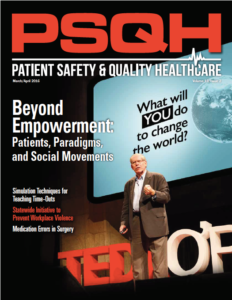This is my public declaration of priorities, as inspired by the /now page movement started by Derek Sivers. I learned about this (as with so many things) from Susannah Fox.
Speaking:
I’m an evangelist for a new view of health and care, centered around patient autonomy and empowered partnerships with enlightened medical professionals who welcome collaboration. I spread the word through speeches that connect with different audiences’ varying perspectives, as well as through my writings.
I’m thrilled that live conferences are resuming! Zoom meetings are just not the same, but I continue to speak virtually (recent review) as well.
Patient data access:

I’m a co-founder and (now retiring) co-chair of the HL7 Patient Empowerment workgroup, specifically focusing on expressing the voice of the patient in the FHIR health data standard. (Learn what it is and why it’s important.) As with everything in the HL7 standards organization, all meetings and proceedings are fully open and transparent (though sometimes quite nerdy); you’re welcome to attend. The workgroup’s home page is bit.ly/hl7patients and weekly calls are at 1pm ET Thursday; projects have lots going on too, and are happy to have new participating members.
I’m an avid participant in the semi-annual FHIR DevDays conferences, as leader of its Patient Track.
My latest personal health issue:
After a failed cataract operation in 2020 I acquired glaucoma in 2021 and have lost 30% of the vision in my left eye. I’ve been immensely frustrated at how ophthalmology is not participatory yet and am working on it. First steps: (1) joined the FitEyes e-patient community, and (2) started measuring my eye pressure at home, instead of only at occasional doctor visits – same as people do with blood pressure, bathroom scales, baby thermometers etc. I’m using the iCare Home tonometer. You can’t manage what you can’t measure; knowledge is power.
Thinking:
One motto I’ve acquired is “If you live long enough, things change!” This is a huge factor in my continuing work on changing the culture of healthcare: for care to achieve its potential we need to understand the assumptions that underlie how health and care are structured today.
Current fascination: “The evolution of who knows what.” Did you know there’s only been one century in all of human history where doctors actually knew what they were doing, and patients did not and could not? That century is over, and it changes how healthcare might achieve its potential.
Reading:
I listen to audio books and podcasts constantly, including four themes beyond news:
- The nature of knowledge, science, and human thought: The Structure of Scientific Revolutions, Superforecasting, Thinking Fast & Slow, Leadership on the Line, Sapiens, Homo Deus …
- Healthcare’s evolution and limitations: The Emperor of All Maladies, How Doctors Think, The Patient Will See You Now, The Anatomy of Hope, The Gene, The Hospital: Life, Death, and Dollars in a Small American Town, An American Sickness…
- How business methods have changed since my early-career days in product management: Blitzscaling, The Effortless Experience, Radical Focus, Platform Revolution …
- Anti-racist self-education: How the South Won the Civil War, The Mismeasure of Man, How to Be an Anti-Racist, Why I’m No Longer Talking to White People about Race…






